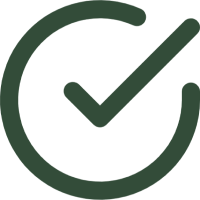How Are Working Groups Formed?
- Home
- How Are Working Groups Formed?
The DLF Qutab Enclave RWA is committed to a transparent and inclusive process for forming these ad-hoc working groups.
Formation Process

Throughout the year, the RWA Executive Committee will gather resident input through surveys, open forums, and complaint data analysis. This will help identify key areas requiring focused efforts.

Once specific needs are identified for each working group, the RWA will announce application details. Residents can express their interest by submitting applications online through the RWA website ([Insert Website Link Here]) or through physical application forms available at designated locations within DLF Qutab Enclave.

- A dedicated Selection Panel, comprising representatives from different phases (if applicable) and ensuring diverse perspectives, will be appointed by the RWA Executive Committee.
- The Selection Panel will review all applications based on clearly defined qualification criteria for each group (e.g., minimum residency period, relevant skills or experience). This criteria will be available on the application form and website.
- Interviews may be conducted (if needed) to shortlist candidates.
- Final selections will be made based on objective criteria, ensuring a fair and transparent process.
Targeted Working Groups

- Develop a streamlined process for residents to submit complaints and track their resolution.
- Establish clear communication protocols for informing residents about the status of their complaints.
- Identify recurring issues and recommend solutions to the RWA Executive Committee.
- Collaborate with other committees (e.g., Fundraising) to secure resources for potential infrastructure improvements or maintenance projects addressing common complaints.
- Build relationships with local authorities to facilitate addressing community-wide concerns (e.g., traffic management, waste disposal).
- Develop a knowledge base of frequently encountered issues and corresponding solutions for residents' reference.

- Design a user-friendly system for residents to register as volunteers and express their areas of interest.
- Launch targeted outreach campaigns to attract new members and engage existing residents.
- Organize welcome events and training sessions for new members to foster a sense of belonging.
- Create a volunteer database with resident skills and availability for efficient matching with RWA initiatives.
- Develop a robust recognition program to celebrate volunteers' contributions and encourage continued participation.
- Partner with other committees (e.g., Events) to identify volunteer opportunities within community events.
- Network with other local CSOs for workshops and events with public participation.

- Establish a transparent and accountable fundraising process, outlining potential avenues for generating resources (e.g., member contributions, grants, sponsorships).
- Develop clear communication materials to inform residents about fundraising efforts and their intended use.
- Identify initial fundraising targets to support specific RWA initiatives.
- Secure ongoing funding to support the RWA's long-term goals and projects.
- Explore innovative fundraising strategies (e.g., community events with fundraising elements).
- Develop a comprehensive communication plan to keep residents informed about RWA activities, achievements, and financial health.

- Organize a series of engaging events catering to diverse resident interests (e.g., cultural celebrations, family-friendly activities, sports tournaments).
- Develop a pilot program to support local businesses within DLF Qutab Enclave (e.g., promotional events, networking opportunities).
- Conduct a survey to gauge resident interest in various event themes and local business support initiatives.
- Establish a calendar of recurring events that contribute to community spirit and resident engagement.
- Foster partnerships with local businesses for event sponsorships and mutual benefit.
- Create a platform for highlighting and promoting local businesses within the DLF Qutab Enclave community.
Communication and Coordination Procedures
(Refer to previous section for details on meetings, reporting, information sharing, and joint initiatives)

- Resident Empowerment: Participation in ad-hoc working groups empowers residents and fosters a sense of ownership.
- Efficient Problem-solving: Focused groups can address specific issues more effectively.
- Enhanced Communication: Regular interaction improves communication between residents and the RWA Executive Committee.
- Stronger Community: Collaboration fosters a more vibrant and engaged community within DLF Qutab Enclave.

- Watch for announcements regarding specific needs and application processes for each ad-hoc working group published on the RWA website and notice boards.
- We encourage all residents with relevant skills and interest to participate in shaping a better community!
Together, let’s build a stronger, more vibrant DLF Qutab Enclave!
The Power is in Your Hands!
BB-8 Qutab Plaza, DLF City Phase I, Gurugram-122002, Haryana, India.